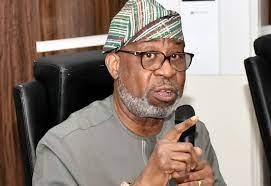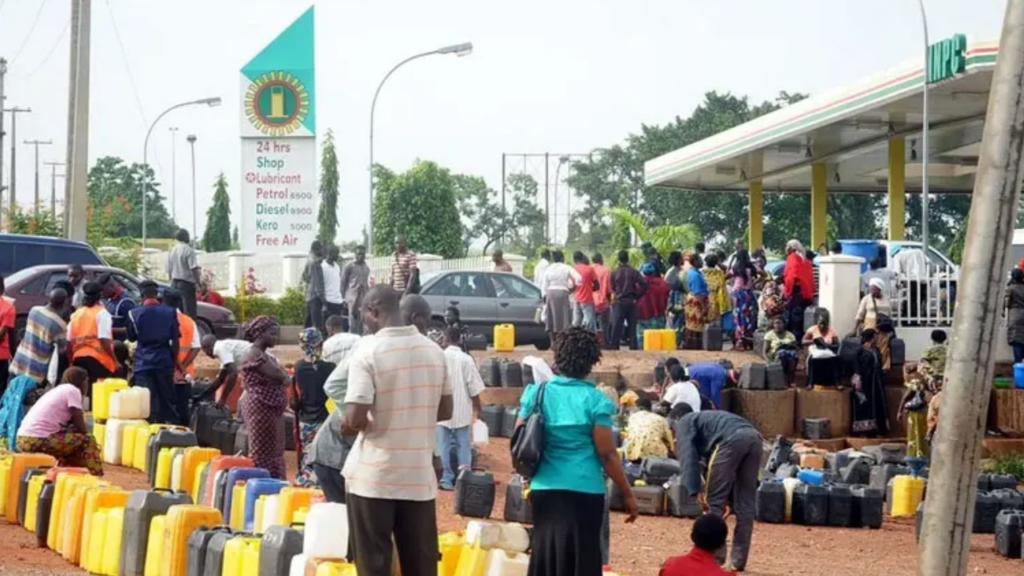Solid Minerals
China Steel Firms Losing Appetite for Overseas Iron-Ore Assets

BEIJING — China is urging its steel companies to buy more iron-ore assets abroad, amid signs that many are losing their appetite for such investments.
China imports around two-thirds of its iron ore, a key ingredient in steel production, and breakneck economic development and a flood of new wealth drove an overseas spending spree in recent years among Chinese steelmakers hungry for assets that produce iron ore. But many of those ventures have been plagued with expensive delays.
The National Development and Reform Commission, Beijing’s top economic planning agency, said this week that Chinese steelmakers should keep building up a stake in global iron-ore assets in the interests of China’s strategic security and “speaking rights” in global trade. China’s ore imports last year hit a record 819 million metric tons, up 10% from 2012, according to customs data.
 A renewed push could net bargains for China. Due to rising global supply, iron-ore prices have fallen 20% from their peak of $155 a ton last year.
A renewed push could net bargains for China. Due to rising global supply, iron-ore prices have fallen 20% from their peak of $155 a ton last year.
Chinese deal-making to own these assets has fallen in the past two years. The number of asset acquisitions fell from 16 in 2009 to just six last year, according to data provider Dealogic. Only two such deals are in the pipeline so far this year, Dealogic said.The value of the deals also fell. Last year, Chinese companies spent $1.2 billion in pursuit of global iron ore, Dealogic data showed. At its five-year peak in 2010, steelmakers poured $2.7 billion into the sector.
A senior NDRC official said in December 2012 that China should accelerate asset acquisitions abroad, even while he noted a “difficult problem” in the fact that Chinese steelmakers had spent $10 billion in five years with few foreign assets delivering actual output. This acknowledgment was never meant as a call to slow the pace of China’s world-wide push, said Chi Jingdong, principal analyst at the China Iron and Steel Association.
“The Chinese government is still very much encouraging overseas iron-ore investments,” Mr. Chi said, describing delayed projects as exceptions that don’t detract from the overall policy.
In December 2012, state-owned Metallurgical Corp. of China pulled a $3 billion project in Western Australia. Sinosteel Midwest Corp. shelved a $2 billion asset in the same region a year earlier. An $8 billion project nearby, owned by Citic Pacific Ltd., started in 2006 and began to ship its first concentrate only last month. Citic said that the experience of putting its first two production lines in place will benefit the company in completing the project.Baosteel Group Corp., parent of China’s largest listed steelmaker, said in August it no longer has overseas acquisition plans–unusual for a company that depends on foreign ore and used to eye assets from Brazil to South Africa. Baosteel spokeswoman Zhang Wei didn’t respond to calls for comment.
Last week, Wuhan Iron and Steel Group said it isn’t bidding for the Canadian iron-ore assets of Australian mining giant Rio Tinto PLC after discussions with Rio. People familiar with the discussions suggested that Rio’s price was too high, an indication that Chinese steel giants were no longer open to spending freely on global ore.
“China’s iron-ore demand will still rise, its reliance on imports won’t change, and the degree of monopoly in global iron-ore resources will still keep increasing,” the NDRC said. It suggested mills could offer to build mines and mills abroad, as well as the construction of railways, ports and energy facilities toward that end.
But the government remains wary of encouraging mills to add to steelmaking capacity at home, which has been blamed for worsening environmental pollution. Chinese mills should “support building steel mills overseas, to reduce domestic demand for iron ore,” the commission said.
– WALLSTREET JOURNAL
Business
Nigeria set to boost Naira value and foreign reserve with local gold production, as Tinubu receives gold bar
IN a significant move to strengthen Nigeria’s economy, President Bola Tinubu received a symbolic gold bar on Sunday from the Minister of Solid Minerals Development, Dele Alake.
This gesture marks the commencement of the National Gold Purchase Program (NGPP), aimed at boosting the naira’s value and enhancing the country’s foreign reserves.
Minister Alake expressed gratitude to President Tinubu for his support of reforms in the solid minerals sector.
He highlighted that the NGPP, which involves sourcing gold from artisanal and small-scale miners and refining it to meet the London Bullion Market Association’s Good Delivery Standard, will substantially contribute to Nigeria’s economic stability.
Alake stated “This initiative will significantly increase our foreign reserves and strengthen the naira. The refined gold will be supplied to the Central Bank of Nigeria, marking a crucial step in our economic strategy.”
The presentation also underscored the first commercial transaction under the NGPP, establishing a centralized gold purchasing system that integrates small-scale miners, cooperatives, and production units across the nation.
This program is expected to provide a structured market for gold, fostering economic growth and stability.
He said, “The successful completion of the first commercial transaction clearly demonstrates the National Gold Purchase Program’s effectiveness. It has increased the nation’s foreign reserves assets and shown that using the Nigerian Naira to purchase a liquid asset traded in United States Dollars, such as gold, is a viable strategy. This transaction has also underscored the potential of the National Gold Purchase Program to enhance fiscal and monetary stability.”
Alake added that the initial commercial transaction under the program resulted in a +US$5 million boost in Nigeria’s foreign reserve assets.
The transaction involved refining over 70 kilograms of gold to meet the London Bullion Market quality standard and aggregating locally mined gold, thereby infusing approximately NGN6 billion into the rural economy.
President Tinubu expressed appreciation for the Ministry’s accomplishment in advancing the government’s goal of economic diversification by acknowledging and displaying the symbolic gold bar
Solid Minerals
FG Fingers Foreigners Sponsoring Banditry For Illegal Mining

The Nigerian Government has threatened to come down heavily on foreigners sponsoring bandictory as a way of sustaining illegal mining activities in parts of the country.
The warning was handed down in Abuja by Minister, Solid Minerals Development, Dr Oladele Alake, while receiving a delegation of the Nigeria-China Chamber of Mines led by its National President, Dr. Olugbenga Ajala.
Details of these were contained in a statement released by Head, Press & PR, Ministry of Solid Minerals Development, Alaba Balogun over the weekend.
The statement cited, Dr Alake, thus, “The government will come down firmly on these unscrupulous foreign operators sponsoring banditry to perpetrate illegal mining: let me use this medium to appeal through you to tell those sponsors to desist or face the full wrath of the law.”
According to Dr Alake, the Ministry is committed to establishing a multi-agency task force that will end the activities of illegal miners and their collaborators.
The Minster made it clear that the FG had given illegal miners a 30-day-ultimatum to legitimise their businesses, quit Nigeria or incur the wrath of the law.
According to him, this will help “to streamline and structure the Small-Scale Artisanal Miners for maximum yield to the Federal Government.”
The delegation paid a courtesy call on the Minsiter at the Ministry’s headquarters in Abuja.
Energy
Fuel Scarcity: Govt Yet to Increase Pump Prices – NMDPRA

By Edozie Obasi-Eze
Amidst heightening uncertainties in the domestic petroleum products market characterised by scarcity and irregular pricing, the Nigerian Midstream and Downstream Petroleum Regulatory Authority (NMDPRA) has declared that there’s no intention to review pump prices upwards.
This was contained in an advisory issued by General Manager, Corporate Communications, NMDPRA, Kimchi Apollo.
He stated that the Nigerian National Petroleum Corporation Limited (NNPCL) had imported PMS with current stock levels sufficient for 34 days.
In an attempt to address panic buying and speculations which have seen price of Premium Motor Spirit (PMS) oscillate between N180-N250 in the Lagos area, Apollo assured that there was enough quantity of the product in the country already.
He said, “Consequently, marketers and the general public are advised to avoid panic buying, diversion of products and hoarding.
“In keeping with the Authority’s responsibilities as outlined in the Petroleum Industry Act (PIA), the Authority assures the public that it would continue to monitor the supply and distribution of petroleum products nationwide, especially during this holiday season.”













